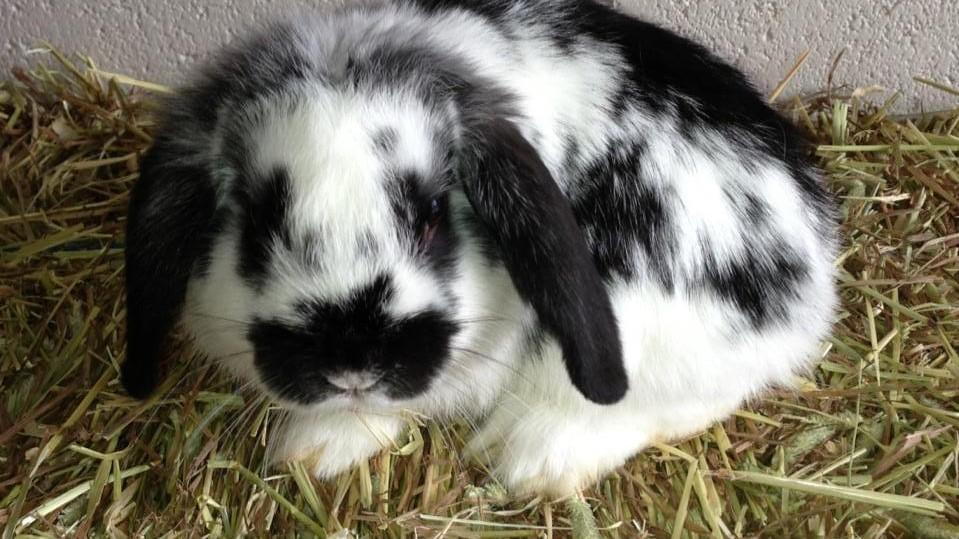Rabbit Care

- posted: Jan. 22, 2023
Rabbit Care
The year 2023 is the Year of the Rabbit so what better time than to discuss rabbit care? Rabbits are not rodents but rather part of the lagomorph family which also includes hares and pikas. They have 2 sets of upper incisors instead of one like a rodent and their teeth continuously grow. Male rabbits are known as bucks, females are does and their babies are called kits. A rabbit’s ears help keep them cool in the heat, but rabbits also have exceptional hearing sounds up to two miles away!
Rabbits can live 5-10 years in captivity. They require a large cage or hutch in a draft-free area or they can be housed in a “bunny proofed” room. Rabbits like to chew on wires so be sure that any cords and wires are out of reach of your rabbit if he or she roams the house. Rabbits may also be taught to use a litter box and need plenty of fresh water as well as hay, vegetables and fresh greens and pellets. Some foods such as avocado, rhubarb, cauliflower, parsnips, raisins and vegetables in the onion family can be harmful to rabbits. Iceberg lettuce should also be limited as it can cause diarrhea, especially in young rabbits Bunnies also need items to chew on and proper roughage to keep their teeth healthy. Rabbits also enjoy play and need enrichment in their environment. Cardboard boxes or “castles” provide lots of entertainment for bunnies and there are a variety of other rabbit safe toys available.
If your rabbit is housed outdoors, make sure the hutch is off the ground, is large enough for your bunny to hop around and has an enclosed space filled with hay to keep your bunny warm and dry.
While they don’t need annual vaccines, periodic visits to the vet are a good idea as rabbits can be prone to health issues. Ear infections may occur due to large amounts of wax or debris in the ear canal which can lead to bacterial infection. Rabbits can also get ear mites. A rabbit with an ear infection may develop a head tilt and trouble staying upright and holding their balance. They may continuously fall or roll over, stop eating and/or paw at their ears. It is important to have your rabbit evaluated by a veterinarian to confirm the cause. Most ear infections can be treated with medications. Respiratory infections are also common and usually due to Pasteurella bacteria though other bacterial and viral organisms are sometimes found. Stress or poor husbandry can often lead to infection. Affected rabbits may have nasal and/or eye discharge, sneezing, lethargy, loss of appetite, difficulty breathing and decreased activity. Rabbits who are very ill may need to be hospitalized for supportive care and treatment with antibiotics. Milder cases may be treated outpatient with antibiotics. Dental disease and digestive issues are also common in rabbits.
Rabbits make fun pets, but just like any other pet, they require commitment and proper veterinary care to remain happy, healthy pets. If you are interested in keeping rabbits as pets, do your research on proper housing, feeding and care and your rabbit should live a long, happy life.
This blog brought to you by the Patton Veterinary Hospital serving Red Lion, York and the surrounding communities.
Location
Patton Veterinary Hospital
425 E Broadway
Red Lion, PA 17356
